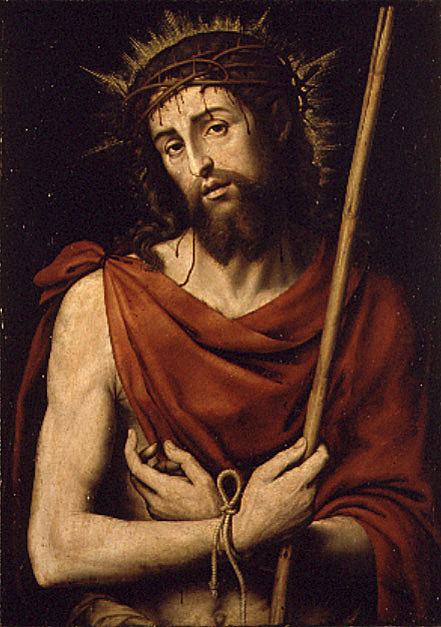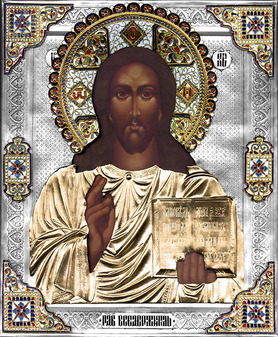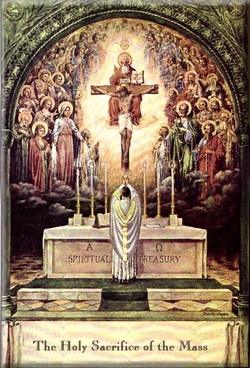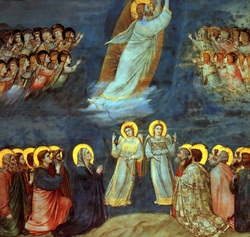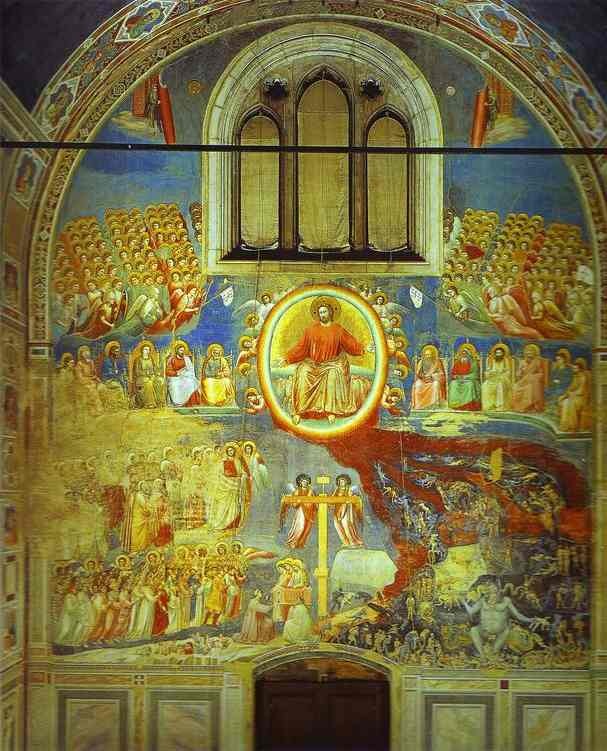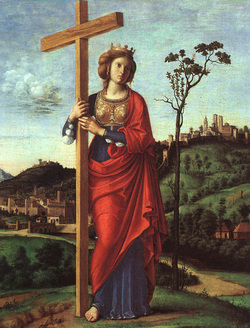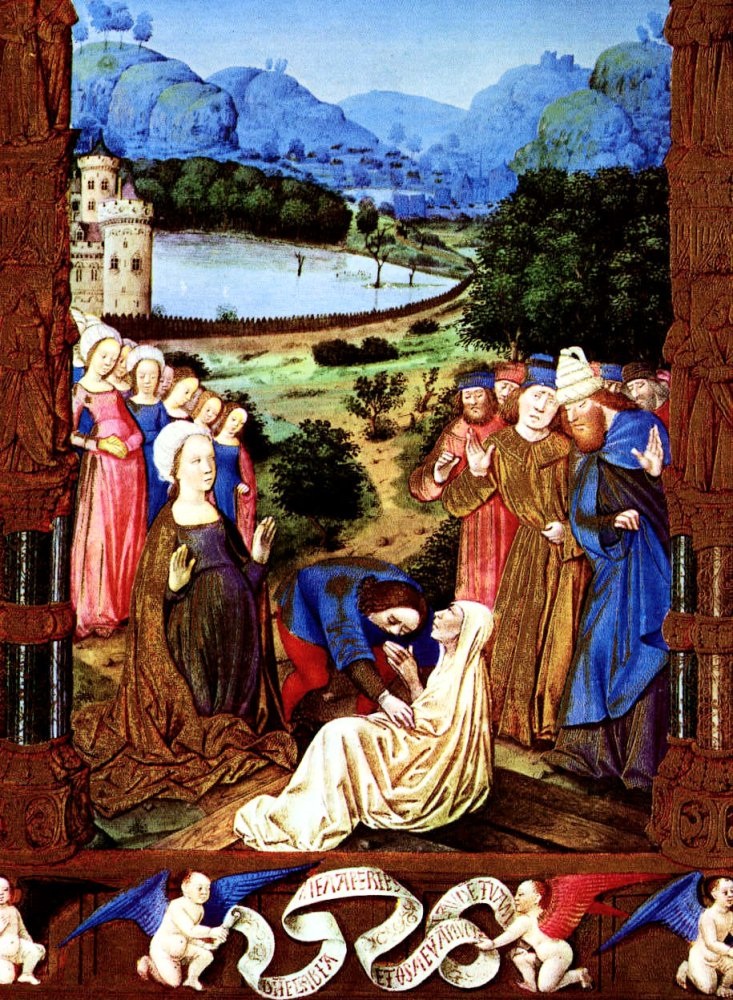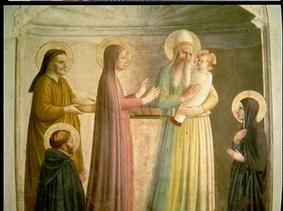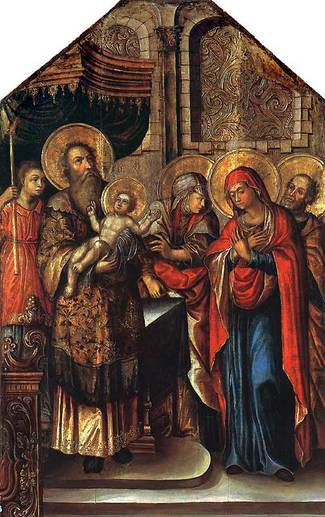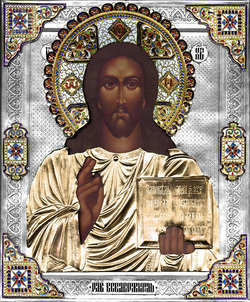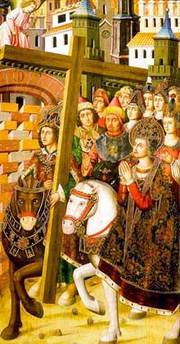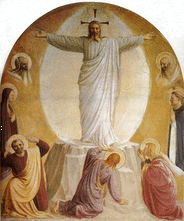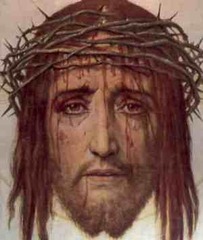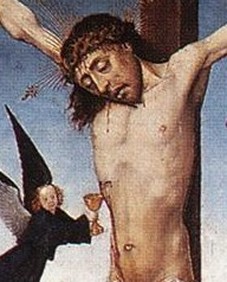
Wouldst thou learn the power of the Blood of Christ? Then let us look at the figure thereof, by calling to mind the ancient type written in the ancient Scriptures. In Egypt, at midnight, God threatened the Egyptians with the tenth plague, by which their first-born should perish, because they kept in captivity his first-born people. But, lest the beloved Jews should share their danger, because they were all in the same place, he found, in his wisdom, a remedy. Behold then a wonderful figure, that thou mayest learn his power in truth. The anger of the divine indignation was expected, and the Angel of Death circled over every home. What, therefore, did Moses do? Kill, saith he, a yearling lamb, and sprinkle the doors with its blood. What sayest thou, O Moses? Is the blood of a sheep likely to deliver a reasoning man? Yea, in good sooth, saith he; not by what that blood is in itself, but because by it, there is displayed a figure of the Blood of the Lord.
For as the statues of monarchs, mindless and speechless images though they be, have sometimes been an helpful refuge to men endowed with soul and reason, not because they are made of bronze, but because the likeness they bear is a King's. And just so did this unconscious blood deliver the lives of men, not because it was blood, but because it foreshadowed the shedding of the Blood of Jesus. On that night in Egypt, when the destroying Angel saw the blood upon the lintel and on the two side-posts, he passed over the door, and dared not to enter in unto the house. Even so now much more will the destroyer of souls flee away when he seeth, not the lintel and the two side-posts sprinkled with the blood of a lamb, but the mouth of the faithful Christian, the living dwelling of the Holy Ghost, shining with the Blood of the True Messiah. For if the Angel stopped before the type, how much more shall the enemy tremble if he should perceive the reality itself? Wouldest thou hear more of the power of that Blood? I am willing. Consider from what source it welleth, from what fountain it springeth. Its fountain is the Cross itself, its source is the Side of the Lord. The soldier opened his Side, and laid open the wall of that holy temple; and I have found that most noble treasure, and I rejoice to discover the glittering riches.
And so was it done concerning that Lamb: the Jews killed a sheep, and I have learned the value of the sacrament. From the Side flowed forth Blood and Water. I would not, O my hearer, that thou shouldest pass by the depths of such a mystery as this without pausing; for I have yet a mystic and mysterious discourse to deliver. I have said that the Water and Blood shewed forth symbolically baptism and the sacraments. For from these, holy Church was founded by the laver of regeneration, and the renovation of the Holy Ghost. Through baptism, I say, and through the sacraments, which seem to have issued from his Side. It was therefore out of the Side of Christ that the Church was created, just as it was out of the side of Adam that Eve was raised up to be his bride. This is the reason why Paul saith, no doubt in allusion to his Side: We are members of his Body, and of his bones. For even as God made the woman Eve out of the rib which he had taken out of the side of Adam, so hath Christ made the Church out of the Blood and Water which he made to flow for us out of his own Side. - On the occasion of the nineteenth centenary of the accomplishment of the redemption of mankind, as a fitting celebration of this ineffable blessing, Pope Pius XI decreed an extraordinary Jubilee. During that year the Supreme Pontiff, wishing that the fruits of the Precious Blood of Christ, the Lamb without spot, might redound more abundantly upon mankind and that the minds of the faithful be impressed with more vivid recollections of this same Blood as the price of their redemption, elevated the Feast of the Most Precious Blood of our Lord Jesus Christ to the rank of a double of the first class, to be celebrated as such every year by the universal Church.
